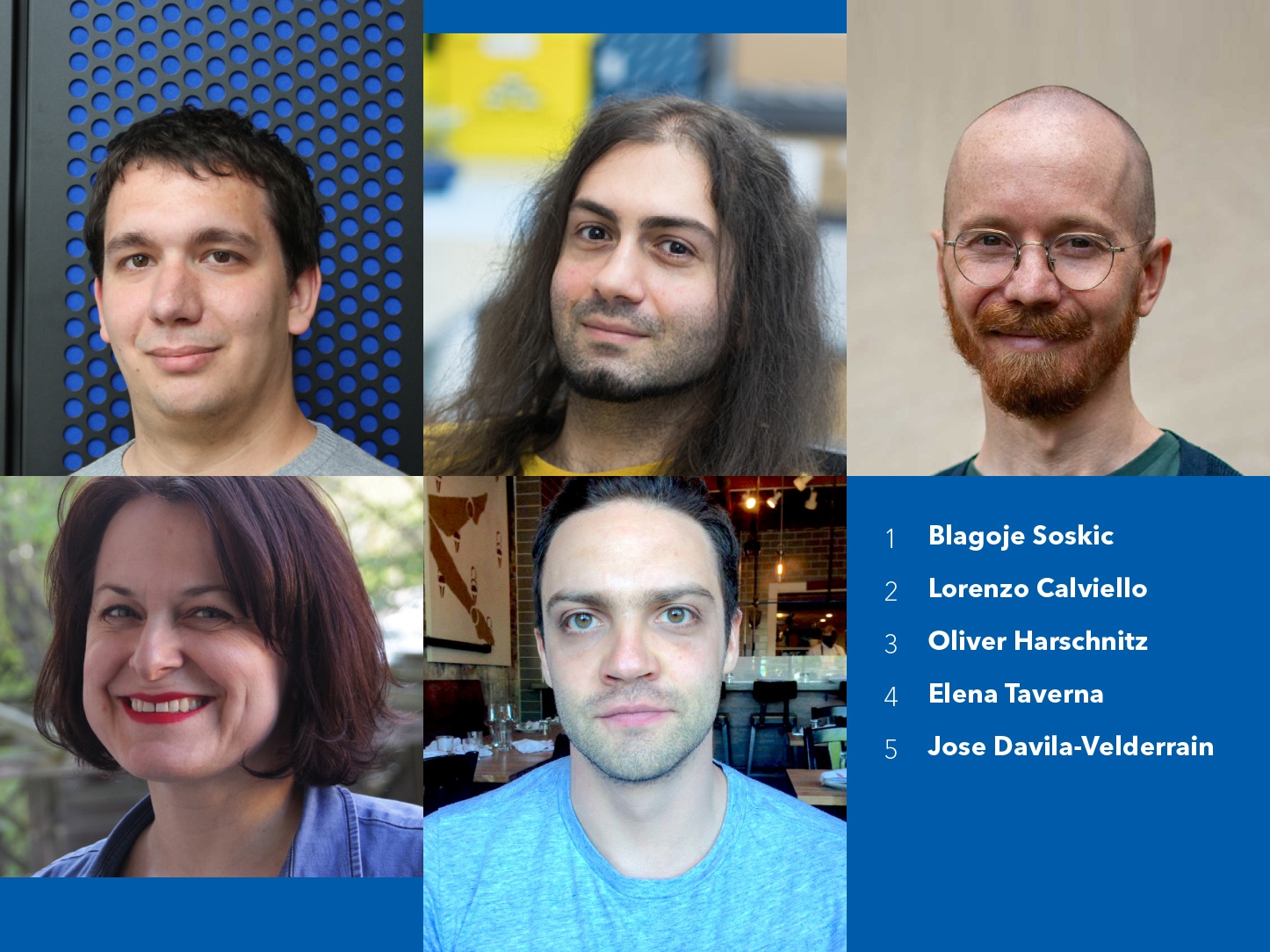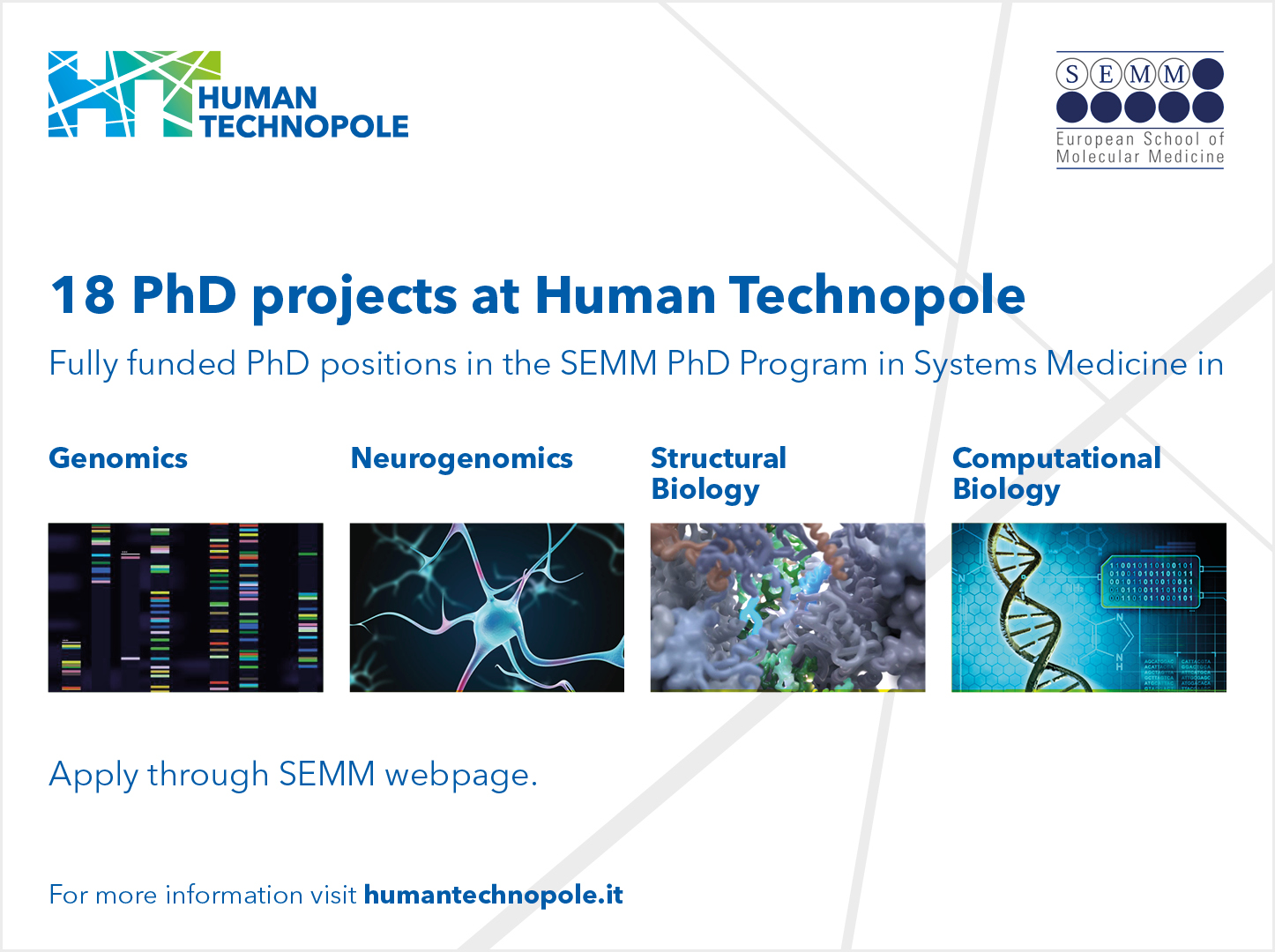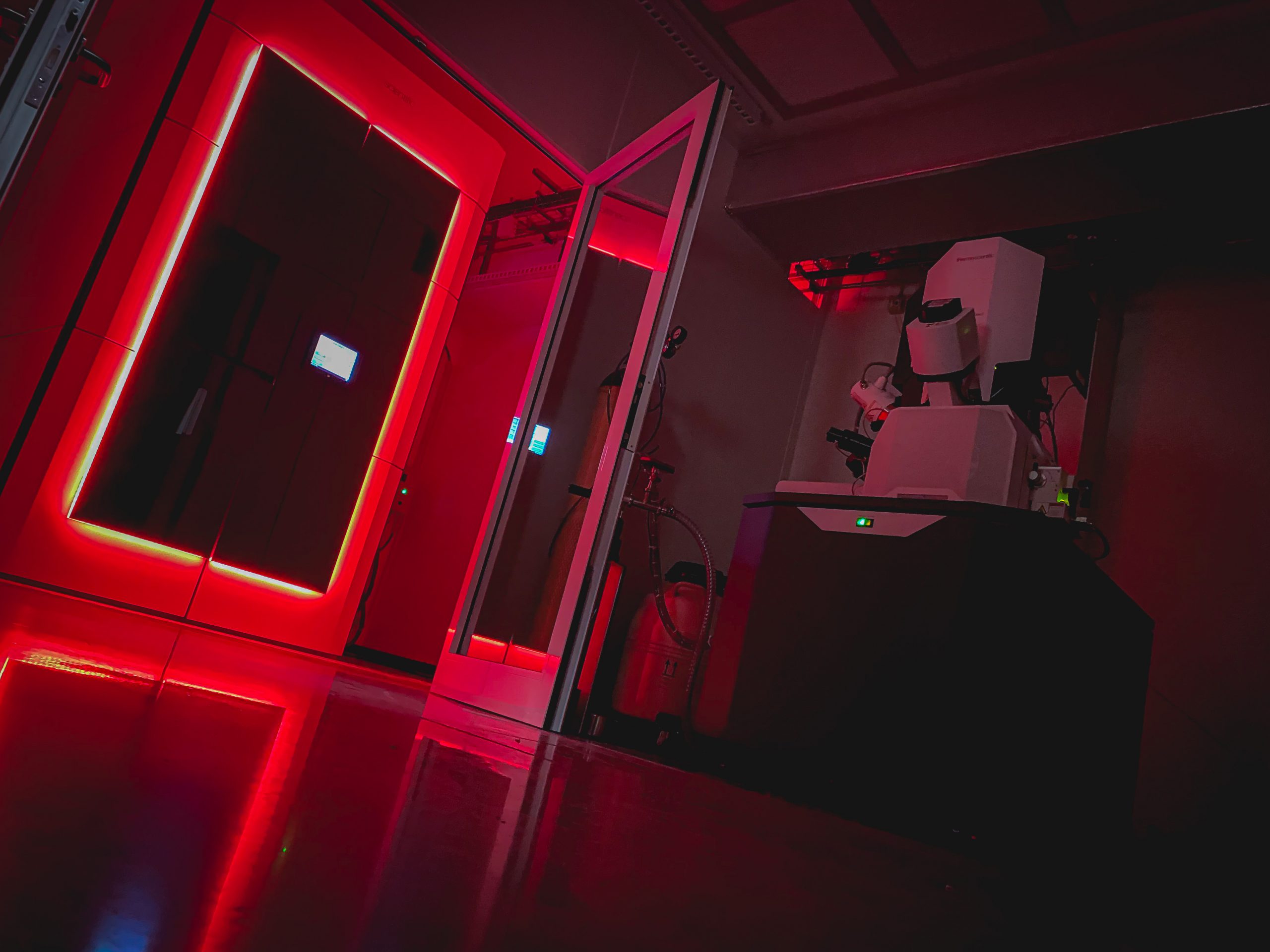18 PhD opportunities at HT through SEMM
Human Technopole is offering up to 18 fully funded PhD fellowships to young scientists from the national and international community who wish to undertake a doctoral degree in Computational Biology, Genomics, Neurogenomics and Structural Biology. We encourage applications from highly motivated graduates with outstanding academic qualifications. Successful candidates will join research groups headed by top-level […]
CNR President Maria Chiara Carrozza visits HT
Today CNR President Maria Chiara Carrozza visited Human Technopole headquarters together with a delegation of department and institute directors of the National Research Council. HT Director Iain Mattaj and HT President Marco Simoni were joined at the meeting by representatives of the institute’s research areas who gave President Carrozza a tour of Human Technopole’s first […]
CryoEM microscopes installed
Titan Krios, Spectra, Glacios, Talos and Aquilos: these are the highly evocative names of the cryo-electron microscopes which Human Technopole has installed in its first major facility. These instruments are unique in Italy and among the most advanced in the world. Compared to more traditional electron microscopes they magnify at a much higher resolution, allowing […]

New Group Leaders in Genomics & Neurogenomics
We are excited to introduce five new Group Leaders who will be joining Human Technopole’s Genomics and Neurogenomics Research Centres in the coming months. GENOMICS Blagoje Soskic is a Serbian immunologist and geneticist, currently a post-doctoral fellow at the Wellcome Sanger Institute in Cambridge, UK. Blagoje’s group uses a wide range of immunological and genomic […]
Our first 100 employees
This week Human Technopole reaches an important milestone: our first 100 employees have been recruited! In a little over a year we have grown from a staff of less than 30 people to 100, and counting. Our numbers continue to increase with new colleagues joining us every week from all over the world. Our employees […]



